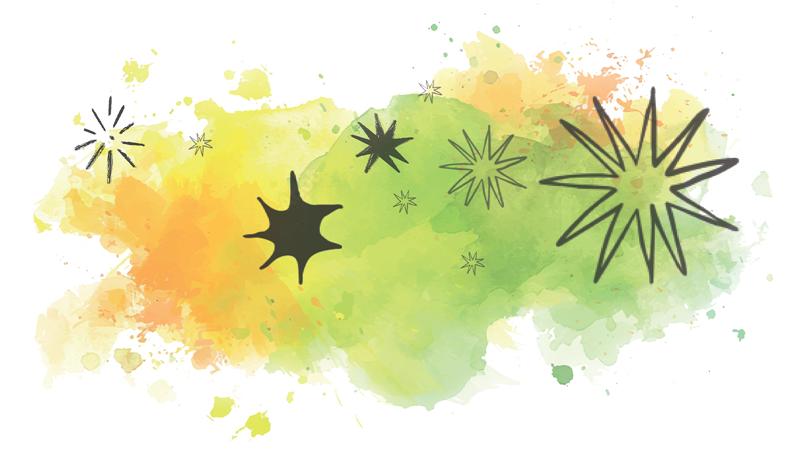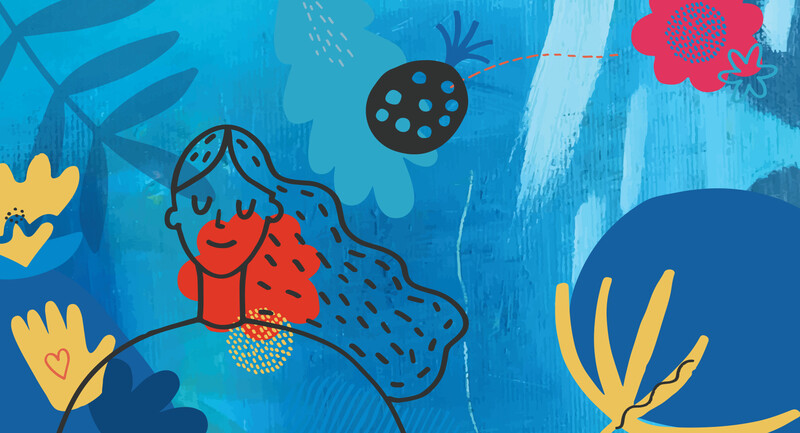The quality of teaching and learning hinges upon the quality of the teacher-student relationship. Traditionally, the teacher was seen as a trusted subject matter expert and person of authority within a school, with the power to pass or fail a student, assign detention, and hand out other punitive measures. However, over time, the teacher-student dynamic has changed. Nowadays, in our digital, less hierarchical age, students have much greater access to knowledge and have leveraged a more powerful voice in the teacher-student relationship than ever before. The absolute, unquestionable, and essentially assumed authority that teachers once possessed is diminishing and being replaced by an authority that has to be earned. Building a healthy rapport and positive relationship with students requires the careful cultivation of mutual respect, honesty, and trust.
The Cornerstone of Rapport
The cornerstone of good rapport is respect: respect for self, respect for the service you provide in your role as a teacher, and respect for those you provide that service to. For teachers, this means developing respect for the multitude of personalities, needs, backgrounds, strengths, and obstacles that come with the students we serve. If we are truly going to establish respect and build rapport with our students, we must take the stance of servant leadership—where we put others' needs before our own in an effort to share power and facilitate opportunities for students (and colleagues) to perform at their highest potential.
In my experience as a teacher and administrator, I often found that the students who need the most love, support, and encouragement may show their need in rude and disrespectful ways. When a student lashes out in class, you must have the presence of mind in the moment to know that sometimes, poor behavior isn't about you personally. Sometimes it's connected to an unfavorable circumstance or argument at home that took place before school. Sometimes it's hunger pains. Sometimes it's an overall frustration or angst about school. Sometimes it's a combination of the three. The ways in which you choose to respond, however, can mean the difference between a peaceful resolution and an escalated conflict cycle.
Unpacked and Unchecked
I'm sure many teachers are reading this and thinking, "You must not know about my class. …" I get it. For me as a teacher, every day was another beautiful struggle: I was challenged with supporting the academic gains of students of varying interests and abilities, while also working through the gamut of behavioral issues, from students fighting to cursing to having loud outbursts to refusing to do work … you name it, I've been there. Experiences like these can be disheartening and unnerving for teachers, and sometimes we go home feeling inadequate, disrespected, and unappreciated despite our detailed lesson planning, hard work, and good intentions. These feelings, gone unpacked and unchecked, can quickly shape a teacher's day-to-day reality, especially when fueled by the comments and validation of coworkers who feel the same way. This can create a defensive disposition among teachers that presents itself in both overt and covert ways.
For example, some teachers, relying on their assumed authority, may interact with students through sarcasm, verbal confrontation, or by being overly punitive (in a "gotcha" manner with no real restorative aspect). Such defensive interactions only feed the conflict.
They can also lead to instances of conscious and unconscious bias playing out in the classroom, via discriminatory or inequitable teaching practices, micro-aggressive behaviors, and personal insults. These might include comments about a student's appearance, grammar, or behavioral affect; showing favoritism to some students, while harshly disciplining others; using phrases that embarrass a student, like "You won't amount to anything in the future" or "You're getting on my nerves"; an over-reliance on worksheets and "busy work"; teaching from your desk; or generally being disengaged. Developing adolescents may not have the emotional maturity to discern whether their teacher is harboring racial and/or unconscious bias or just having a bad day or feeling overwhelmed. Nor should they be expected to.
Your students are looking to you to set the tone as the instructional leader and authority figure. However, an authority that is only assumed and perpetuated without regard to student buy-in and sincere relationship building will result in bad rapport. It will inevitably lead to abuses of power that can affect a student's academic self-esteem and attitudes toward school and authority. This often plays out through a sort of academic and behavioral "tuning out"—in which an errant word or flippant remark in the heat of the moment by the teacher can negatively affect a student's self-esteem, outlook, and academic effort—or worse, potentially trigger or emotionally scar a teenager. At the beginning of his classic song "Juicy," Notorious BIG reflects on his own lasting scars: "This album is dedicated to all the teachers that told me I'd never amount to nothin'. …"
"Nunya" Business
Take the case of a misunderstanding that occurred between a white teacher and Black student at a special education center where I served as an administrator. One afternoon after class, I was asked by the teacher to intervene and mediate a post-conflict conversation between the two. The teacher's understanding of the event was that the student became frustrated during class and began acting erratically, cursing at the teacher and hurling mean-spirited comments and insults, for seemingly no reason at all. The teacher also intimated that she liked the student and thought that they had a strong relationship prior to the disagreement.
When the student entered my office, we asked for her account of the situation. The young girl began to explain that she asked a question about the whereabouts of a fellow student (who had had a conflict with the teacher and was put out of the classroom the previous day). She went on to say that when she asked where her friend was and when he would be returning to class, the teacher replied, "Nunya." The student continued: "My mother told me that the word nunya was short for 'none of your damn business' and I didn't appreciate that lady [the teacher] cursing at me like that. …"
The teacher was shocked by the girl's response and tried to explain that she simply hadn't wanted to discuss the reprimanded student's situation in front of the whole class. Saying "nunya" was her way of postponing the conversation and redirecting the class to work on the task at hand. The teacher went on to apologize to the student for the miscommunication, but also shared her frustrations about the disrespectful comments the student made toward her in public.
Having prior background knowledge about the student's emotional and learning needs, I was able to use informed, compassionate communication to assist her with self-reflection and accountability for her actions. The student understood eventually and apologized for her outburst; however, she was still visibly upset about the exchange, at her own response (which was uncharacteristic), and at being singled out and possibly reprimanded for her behavior.
Later that day, I spoke one-on-one with the teacher to recap the event. The teacher reiterated that she was surprised by the teenager's emotional reaction over something that seemed so small. She shared that the student was generally well-behaved in class and consistently completed assignments. But when I asked the teacher what she knew about the student personally, the conversation took a turn: "That's it. What do you mean?"
Clearly, she hadn't spent much (if any) time getting to know the student beyond a superficial level. Had the teacher invested in their relationship, she might have been more sensitive about using slang or a form of derogatory speech to ward off the girl's question. A deeper awareness of who the student was—a greater respect for her as an individual—could have prevented the interaction from getting "lost in translation."
Out of Bounds and Out of Touch
Another example of this type of avoidable conflict involved a newly hired reading specialist that I once worked with in a high school special education setting. She was a 30-something white woman, naturally outgoing and confident and fresh out of an Ivy League graduate school program. It was her first time working in a school with a predominately Black and Latino student body.
One day, after about a month on the job, the specialist ran into a student she recognized from her caseload, but had had difficulty tracking down for follow-up classes. This student, Gary, was walking in the hallway during class transition with Tanisha, another student from her caseload whom she was working with more consistently. The specialist thought about how she hadn't been able to connect with this young man after several attempts—and was wondering why. In what I can only assume was an effort to be lighthearted and relatable, the specialist called out down the hallway to Tanisha, "Girl, don't hang out with him. He can't even read!" Gary, singled out and humiliated in front of his peers, advanced toward the specialist while unleashing an expletive-filled tirade. Several other teachers and staff intervened to break up the potential altercation, and the specialist retreated back to her office until things cooled down.
Later, when the specialist and I spoke about what happened, she stated that she didn't really know the cause of Gary's anger, but that "the bigger question" for her was whether she needed to move her car from the school parking lot, for fear that Gary might vandalize it—something that she knew her boyfriend would be most definitely "pissed off" about. It was disheartening to see just how much this teacher missed the mark. She was more concerned about disappointing her boyfriend than about offending a student, a confirmation for me that even after all of her specialized training, she still lacked some very basic soft skills.
Her car's safety was in fact not the most important issue here, I explained; it was Gary's feelings of anger and betrayal that mattered first and foremost. After some further discussion, the teacher conceded that she could see how and why Gary (or any student for that matter) would be offended by what she said. She later sought Gary out to apologize and invited him to return to their regularly scheduled reading sessions. He was reluctant at first to even accept her apology; however, with some encouragement from other teachers, administrators, and students, Gary eventually attended the reading sessions. Unfortunately, their relationship was never able to heal, causing Gary to simply "go through the motions."
Practices That Earn Respect
In both scenarios, I posed follow-up questions to each teacher: Do you understand how and why the conflict happened? What action steps can you take to prevent this type of conflict from happening in the future? Again, these teachers demonstrated poor self-awareness and lacked the necessary rapport with their students to use those words, which sparked their respective conflict cycles. A more colloquial way an offended student might describe this misstep is with the blurted-out phrase, "You don't know me like that!" When teachers make assumptions about rapport, they risk damaging relationships—and losing any ounce of authority they've earned up to that point.
So how do teachers move beyond this idea of assumed authority, in favor of a more equitable, inclusive, and culturally responsive approach to building rapport? Consider applying the following practices to earn students' respect.
▪ Just as you establish class rules and expectations with students at the beginning of the school year, establish a collective standard of learning and make a personal commitment to ensure students' success (via differentiated assessments, additional opportunities for makeup work and extra credit, or holding "office hours" during lunch or after school a couple of days a week). If the majority of a class is failing, this failure is not their failure alone.
▪ Cultivate opportunities for personal engagement with your students. For example, establish a class handshake, occasionally eat lunch with your students, and share personal stories or examples of your own text-to-self connections (how you relate to a story based on your experiences) in class, while offering an empathetic ear as you invite students to do the same.
▪ Know that it's OK to be goofy or "out of the loop" on some things. Ask questions and let your students fill you in; they'll be more than happy to teach you for once. Remain curious, open, and show concern—but be careful not to be too intrusive.
▪ Avoid low-expectation style teaching, characterized by intentionally lowering rigor to meet perceived student learning deficits, assigning busy work, being overly punitive, and focusing more on behavior than grades. Teach for skills mastery and understanding of content, not for rule following.
▪ Use compassionate communication. Basic greetings and manners, like saying "please" and "thank you," can go a long way in building rapport. So can asking permission ("Would you mind …?" or "Is it OK if I …?"), admitting to mistakes or being wrong ("My bad, that came out wrong. Thank you for correcting me!"), and giving students the benefit of the doubt. Set norms for communication in your classroom and consistently model them, even when you're being tested.
▪ Recognize and affirm the best qualities that you identify in your students—building upon their assets and positive characteristics (for instance, refer to an assertive or highly inquisitive student as "the future attorney" or "CEO-in-training").
▪ Know how to read a room and situation to avoid the conflict cycle from beginning or escalating. When you see that a student's behavior is "off," pull him to the side and ask if he is OK or if he needs anything. Let him know that you are there to support him.
I know at times it can be difficult to maintain a positive outlook and empowering attitude toward our students. Cultural misunderstandings can compound this stress, particularly in urban American classrooms where predominately young, white teachers work with racially, culturally, and socio-economically diverse student populations. Within these contexts, something as simple as a teacher's sarcastic remark, body language, or tone can be perceived as disrespectful by a student. A teacher's ability to quickly learn key social and cultural cues, however, can go a long way in building rapport with students and nurturing a sense of community in the classroom.
Developing a healthy rapport is possible in any context when we embrace a servant leadership mindset, show compassion, are culturally responsive and affirming, and demonstrate a commitment to our students' success. These actions build students' respect, trust, and confidence in you as their teacher. With this newly earned authority, comes great responsibility.
Guiding Questions
› Do you agree that a teacher's authority is no longer assumed, but has to be earned? What implications does this have for classroom management?
› Have you ever made a sarcastic or off-the-cuff comment to a student that was taken out of context? If so, what could you have done differently?
› What practices do you use to build rapport with students, both collectively as a class and individually?
› How can being more attuned to social and cultural cues help prevent interactions with your students from getting "lost in translation?"







